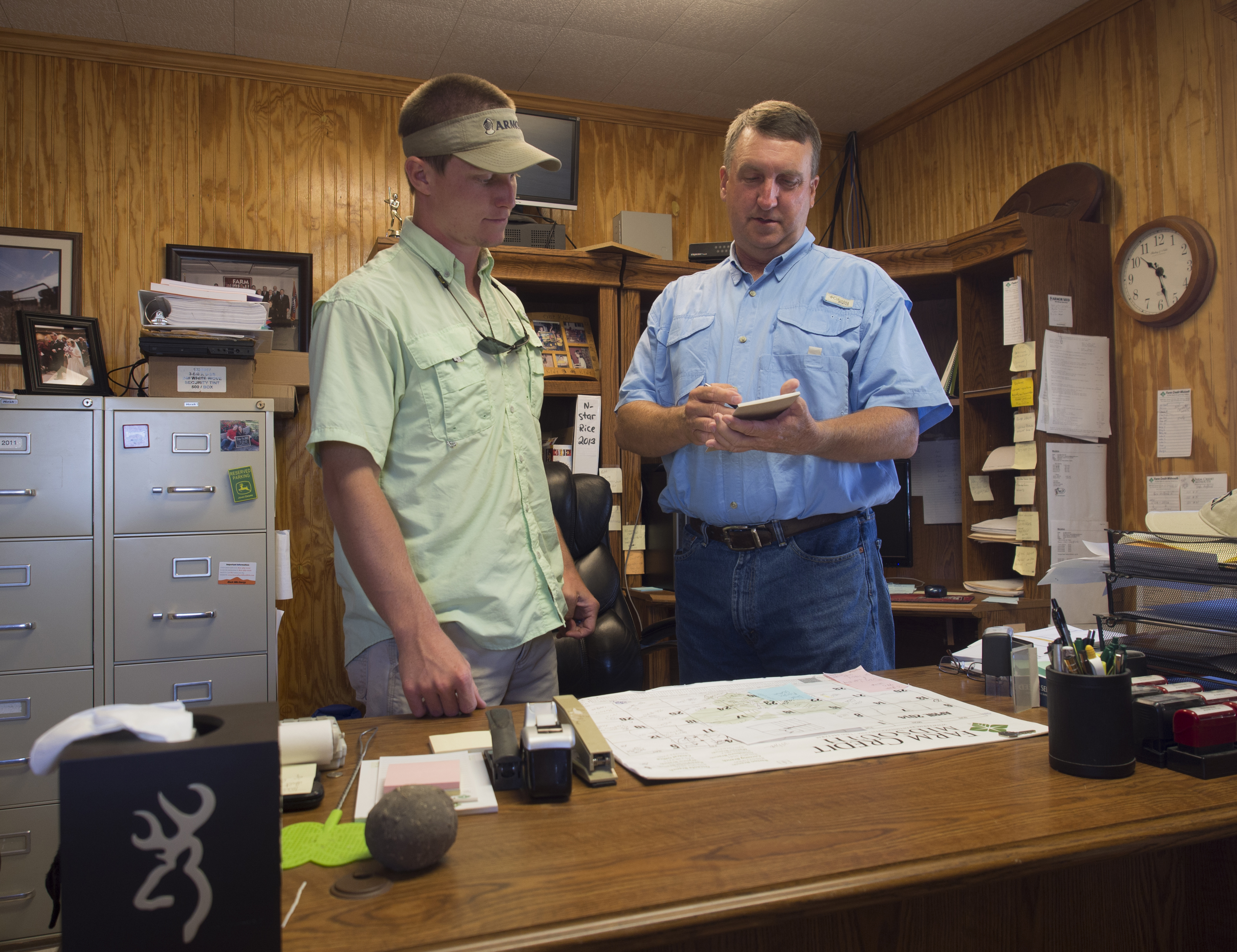 Ryan (left) and Mike Sullivan analyze the data
Ryan (left) and Mike Sullivan analyze the data
Jun 04, 2019
Excerpt from Field to Market Farmer Spotlight
BURDETTE, AR -- On Florenden Farms, innovation is a father-son business. Mike Sullivan lives and works alongside his son Ryan, a fifth generation farmer on their 13,000 acre rice farm. Conservation practices under Mike’s management include everything from selling carbon strategies to introducing row rice, a departure from traditional levee-flooded rice fields, and Ryan continues to accelerate their work in measuring and communicating the impact of their innovative sustainability management.
Recently, Ryan participated in research with Arkansas’s local USDA Agricultural Research Service unit, setting up a series of test fields to pilot different approaches to flooding and measure which approaches result in beneficial outcomes like reduced water usage and reduced methane production. A field using levee-flooding serves as a control, while their other fields now use alternative wetting and drying (AWD) techniques; side inlet delivery which allows a computer to regulate water application through a polypipe running the length of the field; and row rice (also known as furrow irrigated rice) fields.
“Row rice is a new concept, but by tracking and evaluating the AWD techniques in place, we’re able to feel more comfortable expanding those acres,” says Ryan. “We’re able to quantify the amount of water used to irrigate all these different treatments to see how it compares to the traditional watering methods.”
The Sullivans were first introduced to Field to Market’s Fieldprint Platform in 2016 through the USA Rice-Ducks Unlimited Regional Conservation Partnership Program (RCPP), and have been entering data since, allowing them to further analyze these water management techniques areas to foster greater irrigated water use efficiency and conserve water.
The Sullivans' precise rice irrigation techniques have multiple conservation benefits that also translate to economic benefits. After all, implementing new technologies always has to prove its worth to the farmer.
“Yields have to be the main driver,” says Mike. “Saving water and reducing methane is great, but can row rice maintain yields equivalent to levee rice fields? That’s why the data is key—by collecting data in tools like the Fieldprint Platform, you feel more comfortable trying something new on a single field instead of your whole farm. You try it one year, a few more the next, without committing to the whole ball of wax before you know its worth.”
Mike is candid that he’s supported new sustainability techniques and armed his son to introduce increasingly innovative measures, but adopting new conservation practices and analyzing environmental impact has to be grounded in economic realities. “At the end of the day, sustainability means you have to be able to farm again—so you can’t be sustainable if you’re not making a profit,” says Mike.